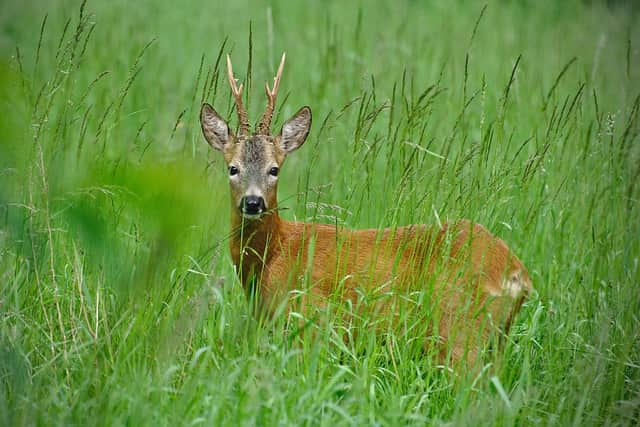Call for recreational hunters to shoot deer on Scotland's public land as part of annual cull
The proposal, from a partnership of 11 groups involved in deer management, aims to institutionalise what is being described as community-integrated deer management by establishing more opportunities for trained recreational deer stalkers to manage deer on state-owned land in their local area.
They say, despite Scotland’s estimated deer population of around one million, many trained stalkers with gun licences struggle to access hunting opportunities in their area.
Advertisement
Hide AdAdvertisement
Hide AdThose behind the proposal claim this is because culls on state property are generally carried out by professional contractors, hired at significant cost to the public purse.


Forestry and Land Scotland (FLS), which manages nearly a tenth the country’s land area, paid out around £10.5 million on deer management contracts and close to £5m on fencing in 2019.
Members of the new partnership, which is being led by the British Association for Shooting and Conservation (BASC), believe this is “needlessly expensive” and there are lots of local people who would be keen to take part and would even pay for the opportunity.
There are 26,300 firearm certificate holders in Scotland, a significant number of whom may already be involved in deer stalking.


However, the number of recreational stalkers involved in regular deer management at a local level is much lower, with many paying to shoot on sporting estates instead.
A considerable culling impact could be made if these individuals were given the chance to hunt deer locally as well, according to the partnership.
They are now urging the Scottish Government to establish a pilot community stalking scheme on FLS land, in which a local recreational syndicate would pay a small fee to take on deer management obligations.
Harvested venison could be sold and consumed locally, minimising the carbon footprint.
Advertisement
Hide AdAdvertisement
Hide AdBASC has pledged to support the syndicate, act as the liaison with FLS and develop operating mechanisms that could be rolled out elsewhere in the future.
In addition, BASC and the British Deer Society, which both deliver deer management qualifications, have pledged to provide discounted training courses to recreational hunters in a bid to upskill communities and make stalking more accessible.
The partnership is also recommending that ministers set up a £250,000 deer management training fund, which would enable BASC and BDS to deliver the basic-level deer stalking certificate to more than 1,000 students free of charge over an eight-year period.
“Deer management is a fundamental and legal obligation, and where possible we must find more economic, sustainable and localised means of controlling Scotland’s deer,” said Ross Ewing, public affairs manager in Scotland for BASC and spokesperson for the group.
“Community integrated deer management will effectively capitalise on our rich, growing and free resource of trained recreational deer stalkers.”
He added: “Deer undoubtedly pose significant environmental challenges, but they are also an iconic natural resource and should be managed respectfully.
“Community integrated deer management provides an obvious, realistic and sustainable means of achieving this.”
A spokesperson for Forestry and Land Scotland said the agency would be keen to consider proposals that could assist proactive deer management on land that is negatively impacted by unsustainably high populations.
A message from the Editor:
Thank you for reading this article. We’re more reliant on your support than ever as the shift in consumer habits brought about by coronavirus impacts our advertisers.
If you haven’t already, please consider supporting our trusted, fact-checked journalism by taking out a digital subscription.
Comments
Want to join the conversation? Please or to comment on this article.
